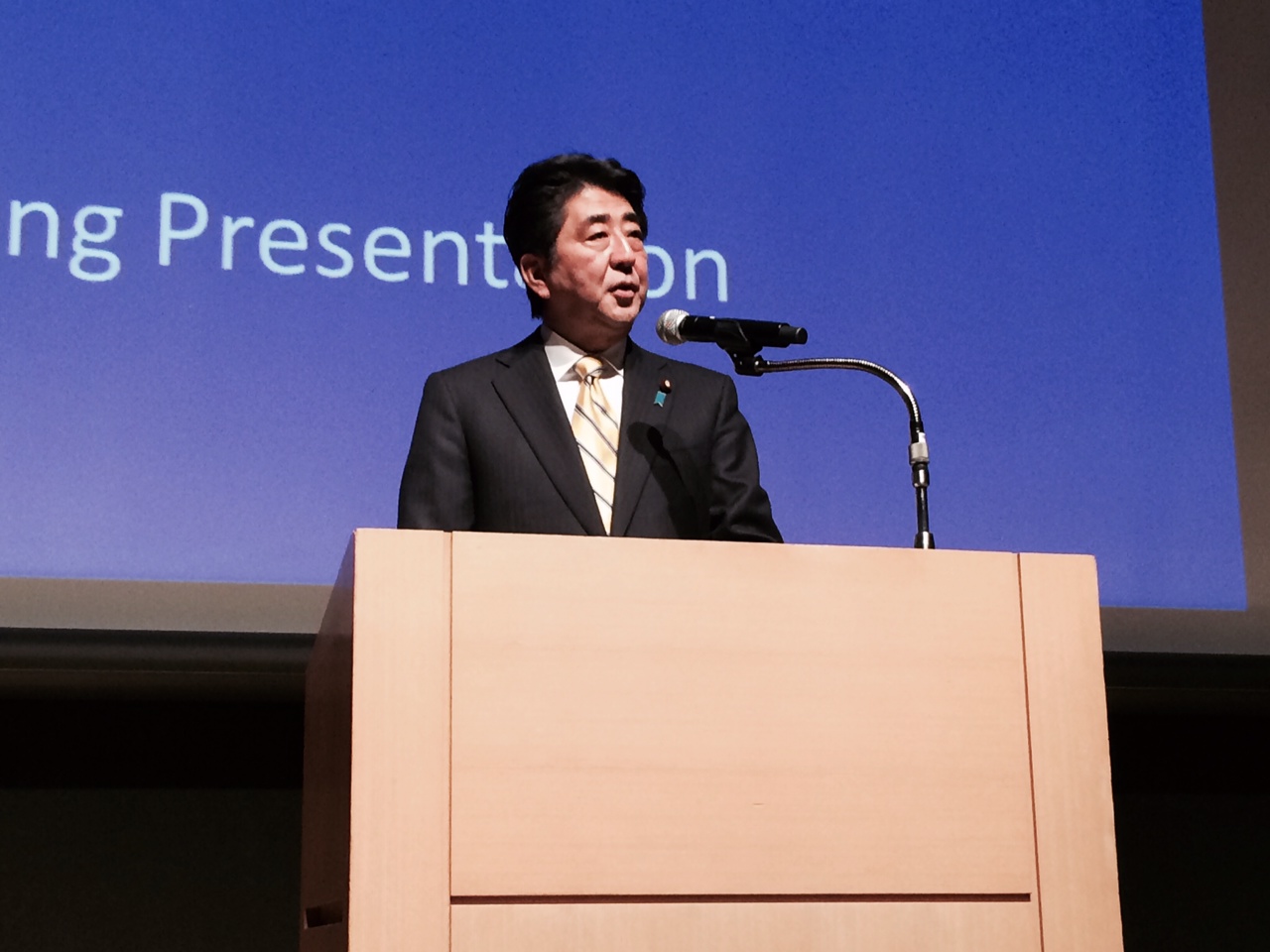The World Dementia Council (WDC) (1) was launched last year in the UK at the G8 Summit. Until now, the Council has met three times, in London, Paris and London, with the Legacy Event being held in London in June, in Ottawa in September and in Japan on November 5-7th.
As a Council member, I have had many roles, including giving a speech at the opening ceremony, as you can see from my website and my twitter, at the Lagacy Event Japan of November.
I was pleased that the first day was even more successful than I had anticipated, due to the strong will and leadersip of the UK government and the ongoing events that were held five times over the past six months in London, Paris and Ottawa, allowing members to share many experiences. The Japanese government and the Ministry of Health, Labour and Welfare, who were the hosts of the event this time around, were also very pleased.
On the second day, both Minister Shiozaki and Prime Minister Abe spoke at the event, pledging a strong, ministry-wide commitment to dealing with dementia. I had the pleasure of presenting Dennis Gillings, the WDC Special Envoy, who spoke via video message as he could not be present at the event. After opening remarks were given by Mark Walport, the Chief Scientific Advisor to the UK Prime Minister and an old friend of mine, as well as by the World Health Organization (WHO), the panel commenced.
The first two-days of the event in Tokyo were comprised not only of presentations and panels by experts but also by people with dementia themselves; thus, it was evaluated very highly by people in the field from the participating countries.
On the third day, there were government-organized events held in Tokyo, Nagoya and Kyoto. In Tokyo, one of the events was a TED Talk-style presentation, led by my Health and Global Policy Institute (HGPI), in cooperation with the OECD okyo office and ten private companies and NGOs that are independent from governments. The presentation included the topics of city planning and the potential use of robots. It was a huge success.
This kind of “social investment,” in which multi-talented people and stakeholders from different backgrounds actively come together, will play a key role for society in the decades to come.
The UK government has displayed a strong commitment to tackling this problem and the British Embassy held two other events in parallel to this Legacy Event, including a dementia workshop led by young people on the second day and a meeting of Japanese and British pharmaceutical companies and ventures on the third day, both of which I attended.
I am incredibly impressed by the will of the British government, as well as their imagination, strategy and implementation in dealing with dementia.


